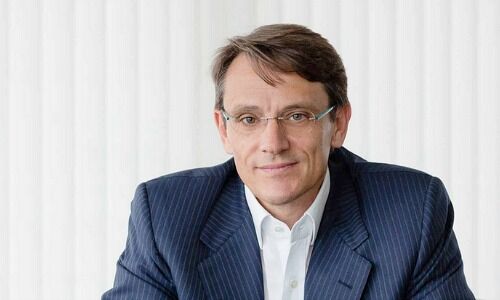The German lender narrowed its losses on banking the world's wealthy during Claudio de Sanctis' first year running a large part of the unit, helped by spending cuts. Provisions against potentially dud loans doubled.
2020 represents Claudio de Sanctis’ first full year at the helm of Deutsche’s wider 272 billion euro ($327.2 billion) private bank outside of Germany. The ex-Credit Suisse banker was poached in 2018 and advanced to the top less than a year later.
The wider unit, including Deutsche’s flagship private bank in Germany under Karl von Rohr, narrowed its pre-tax loss to 124 million euros, from 279 million euros in 2019, according to a statement on Thursday. The unit was finally freed of major costs from winding down Sal. Oppenheim, which it closed in 2017 and kept a lid on its spending, despite copious hiring.
Tightening Credit Nozzle
At the same time, the private bank, which is larger by assets outside of Germany than in its home market, was forced to triple restructuring charges. It also more than doubled provisions for loans to the wealthy, to 711 million euros.
The results illustrate the distance de Sanctis and von Rohr have in catching up to specialized wealth managers like Pictet or Julius Baer, which posted a surge in profits on Monday, or juggernauts like UBS. Formerly a key lieutenant of UBS' private bank co-head Iqbal Khan, de Sanctis has made Lombard lending a key pillar of his strategy.
Four months ago, the Italian banker signaled he was battening down the hatches, after months of letting loans flow freely to the world’s wealthy. Roughly ten percent of Deutsche’s overall 432 billion euro loan book sits in the wealth arm, while German mortgages soak up one-third of the total.
Drawing Unwelcome Attention
De Sanctis has several other issues on his hands, against the backdrop of the pandemic: a slew of legacy issues including money laundering probes and years of loans to ex-President Donald Trump’s family business has drawn public, political, and regulatory scrutiny.
Trump’s banker left Deutsche in December after failing to disclose a 2013 property deal with Trump’s son-in-law, Jared Kushner, the «Financial Times» (behind paywall) reported on Thursday. A key European deputy to de Sanctis told finews.com in August that some «decisions made over the years around client relationships and business that, with hindsight, were questionable,» but that CEO Christian Sewing was serious about dealing with them.
Pandemic Trading Boom
The good news is that de Sanctis’ private bankers hauled in fresh assets: 9.5 billion euros over the year internationally, compared to 5.5 billion euros in Germany under von Rohr. This tipped the assets in de Sanctis’ purview, which expanded further with the addition of business with small and mid-sized businesses in Italy, Spain, and India last year, to 272 billion euros.
Meanwhile, von Rohr, a 55-year-old German retail and corporate banker who is also part of Deutsche's ten-person top management, oversees 222 billion euros on behalf of Germany’s wealthy onshore. Rohr is in charge private banking as well as asset manager DWS, the regions Germany and Europe, the Middle East, and Africa, and is Sewing's deputy.
Withstanding Crisis
The wealth results emerged in Deutsche’s first annual profit in six years, though this was mainly fueled by a trading boom during the pandemic’s early days in March and April as well as Sewing’s wider revamp.
Deutsche bolstered its hardest form of capital as well, leading Moody’s analyst Michael Rohr to note that together with better asset quality and healthy reserves of liquidity, «Deutsche Bank is likely to well withstand the challenges caused by the ongoing coronavirus pandemic.»



































